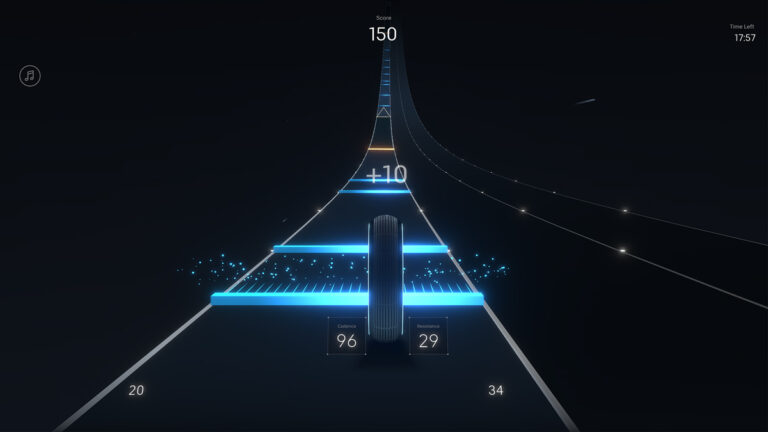Peloton is entering the gaming industry with in-app video game ‘Lanebreak’
Peloton, the maker of high-end exercise equipment also known for its fitness classes live stream which many lucky ones said saved their lives and figures during the pandemic-induced lockdowns, has just revealed it is about to enter the gaming industry. On Monday 19 July, the company announced its latest idea to get people to exercise: an in-app video game called Lanebreak.
The game, which will only be available for Peloton bike owners and subscribers—no surprise there—will allow riders to change their cadence and resistance by meeting various goals and controlling an on-screen rolling wheel.
Players will be able to pick a difficulty level, the type of music they want to hear, and the duration of the track before starting. The game isn’t available just yet, but a members-only beta will open later this year. Peloton hasn’t shared details around how people will be able to sign up either.
“The game’s vibe and interface reminds me of the Rainbow Road in Mario Kart, with a track trailing off into the universe,” writes Ashley Carman for The Verge, and if you know, you know. On Lanebreak, you’re pedalling to keep your tire moving and meet specific goals. There are three types of challenges and ways to earn points: Pickups, which means that so long as you’re in the lane that the game commands, you’ll earn points; Streams, which rewards you based on your cadence; and Breakers, which rewards you based on energy output.
When reviewing Peloton’s new venture into the gaming industry, Carman admits that she didn’t find Lanebreak mind-blowing when it came to making her workout ‘more fun’. Instead, she explains that she much prefers the company’s live instructor-led classes, which have recently made it on TikTok due to a particular instructor’s gift at sharing inspirational-yet-relatable quotes. And who can blame her, Cody Rigsby is ‘a mood’ for sure.
@john_prewitt Never settle #onepeloton #peloton #pelotonbike #pelotontread #pelotontiktok #pelotonmoms #codyrigsby #foryoupage #dontsettle
♬ original sound - John Prewitt
Putting this one review aside, the idea of a game specifically made for workouts is interesting—although not that innovative, RIP Wii Fit—and suggests Peloton is open to new types of content. It’s also especially interesting considering that Netflix is also building in-app video games. Understandably, both companies have realised that they need various content offerings to keep people on their apps longer, even more so as COVID-19 restrictions are slowly but surely being lifted.






